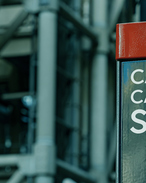Energy News is making some of its most important coverage of the COVID-19
pandemic freely available to readers. For more coverage, please see our
The US giant reported a net loss of $610 million compared with earnings of $5.7 billion the prior quarter and $2.4 billion a year before, but said this was attributable to taking a write down on assets of $2.9 billion.
However it reiterated it will continue its share buyback program and not cut its dividend. Shell has halted both to deal with the fallout of COVID-19 and the drop off in demand.
Revenue was down 11.6% at $56.2 billion for the quarter compared with $67.2 billion for the last quarter of 2019 and $63.9 billion the same time last year.
"Cash flow from operating activities was $6.3 billion. Capital and exploration expenditures were $7.1 billion," it said.
Production was four billion barrels of oil equivalent a day, a rise of 2% over the previous corresponding period, with a rise of 7% in liquids offset by a 5% drop in gas production.
When entitlements and effects and divestments are excluded liquids were up 9% driven largely by Permian Basin and Guyanese production.
It started shipments from its Liza project offshore Guyana late last year and plans production of 750,000bopd in the middle of this decade from the new oil province.
Liquids production from Australia was 38,000bopd, down from 37,000boepd a year ago and a drop from the prior quarter's 45,000boepd.
Australian gas production was 1.24Bcfpd, compared to 1.19Bcfpd the same time last year and 1.244Bcfpd the prior quarter.
There was no word on a Bass Strait divestment.
It announced it will cut capital expenditure by 30% and cash operating expenses by 15%.
It will cut production by 400,000boepd.
Guidance has moved from capex of $33 billion for the year to $23 billion, with the Permian Basin onshore US to take the largest share of cuts.
Chevron Corporation also announced production cuts from its Permian acreage, where costs are typically higher but wells easier to shut in.
"COVID-19 has significantly impacted near-term demand, resulting in oversupplied markets and unprecedented pressure on commodity prices and margins, "Exxon CEO Darren Woods said.
"Economic activity will return, and populations and standards of living will increase, which will in turn drive demand for our products and a recovery of the industry."
"Today's circumstances are certainly unique, but our people have the experience, our business has the scale, and we have the financial strength to see us through and emerge stronger than ever."
Shares fell 7.2% Friday on the announcement and shares have fallen around 38% this year.



